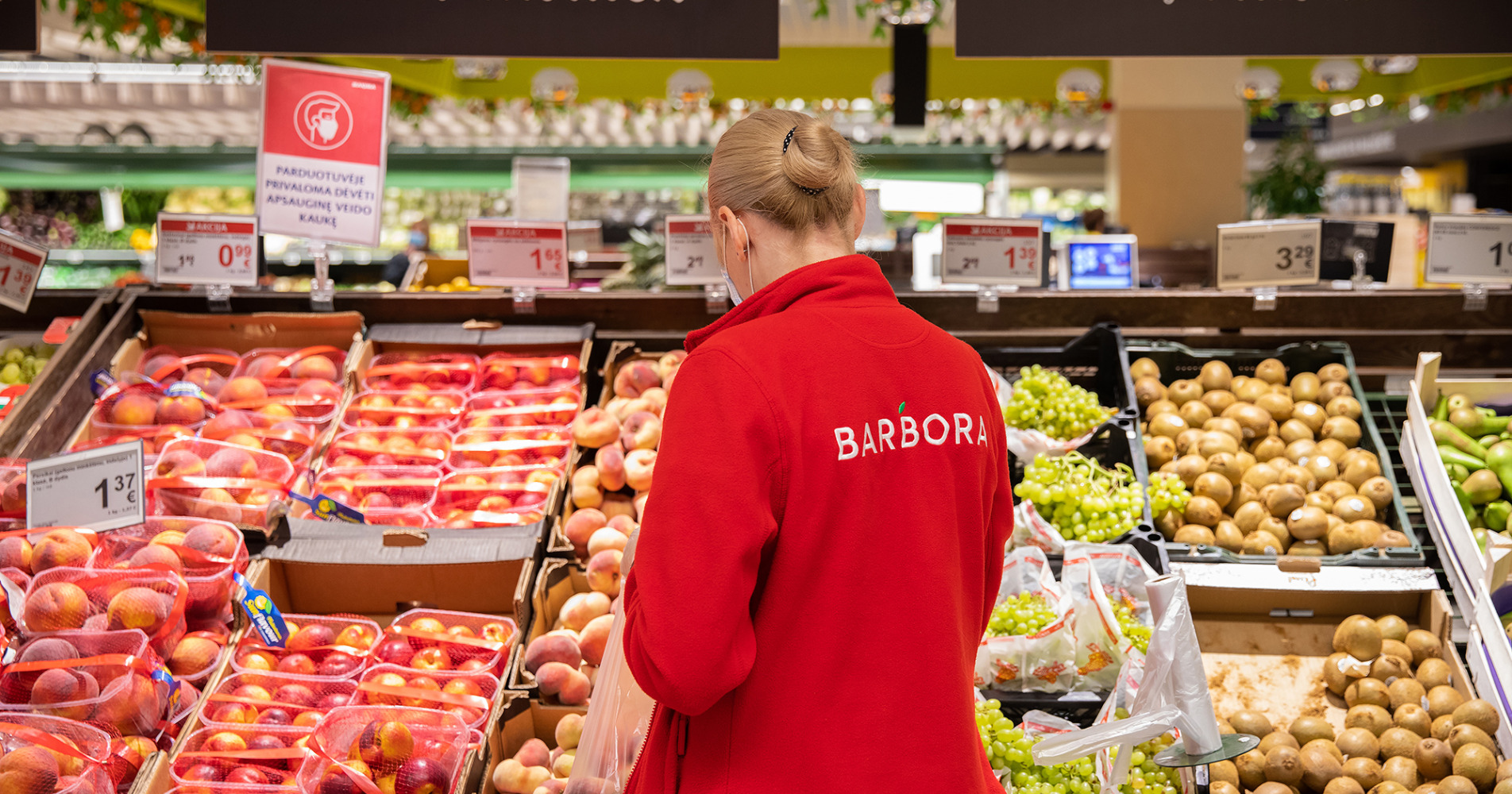News

Baltic State residents fear the worsening of the quality of their life
2008 07 31
 A consumer opinion survey, carried out in three Baltic States in accordance with MAXIMA GRUPĖ's request, has shown that an economic slowdown is felt and its consequences are feared by most people. As many as 88% of the respondents in Lithuania claim the deterioration of the economic situation will either definitely or likely affect them personally.
A consumer opinion survey, carried out in three Baltic States in accordance with MAXIMA GRUPĖ's request, has shown that an economic slowdown is felt and its consequences are feared by most people. As many as 88% of the respondents in Lithuania claim the deterioration of the economic situation will either definitely or likely affect them personally."We have been experiencing the mood of an economic slowdown since the beginning of the year because higher prices of oil and other raw materials as well as a slower global economy has an obvious impact on everything, including the retail trade business," says Gintaras Jasinskas, Director General of MAXIMA LT UAB, a part of MAXIMA GRUPĖ. "In order to prepare for the economic slowdown and plan in advance the measures that may mitigate its consequences, we have decided to research the moods and expectations of our buyers."
According to the survey results, people believe that inflation and price growth will affect them personally and might change their consumption habits. Lithuanian people are predominantly concerned that the price growth and diminished income will worsen the quality of their life; as many as 70% of the respondents indicate it as their concern. Another change that worries people is the necessity to reduce consumption; 67% of the respondents have indicated this fear. Less than half of the survey participants (47%) are concerned about reduced income.
Latvian citizens feel the deteriorated quality of life the most (79%). Price growth and inflation were named as the strongest factors of deterioration. The effect of the latter is most of all felt by the Lithuanian respondents (over 90%). In addition, of all the three Baltic States, Lithuanians are most concerned about the possibly lower quality of life and consumption.
Consumers hope that the largest retail chains should help the buyers overcome the period of change. All the three Baltic States residents think that MAXIMA could take care of the, best. In Lithuania 47 % of them supported this statement, in Latvia – 29 %, in Estonia – 13 per cent. As many as 80% of the respondents would like the prices of the main products to remain unchanged. Another wish that was especially frequently mentioned by the survey respondents was that the retail chains should make more special offers and promotional campaigns, helping them buy goods for a lower price (54% of the respondents).
"Currently we are looking for possibilities to help the buyers reduce the effect of economic slowdown on their everyday life as well as retain positive operating results. All that is for the most part dependent on the overall economic situation in Lithuania and the world; nevertheless, we will try to offset the impact of price growth by negotiating with our suppliers and working in accordance with the revised operating strategy," says Mr. Jasinskas.
The MAXIMA LT UAB retail chain is planning to increase the number of promotional campaigns for various category goods, and also to expand the selection of goods marked with its own trademarks, presenting new trademark MAXIMA FAVORIT. These measures should satisfy the need of the buyers – to choose from a selection of cheapest goods and buy high-quality goods for an average price.
According to the survey, the abovementioned need for high-quality goods for an average price remains topical for half of the Lithuanian consumers who anticipate the prospect of reducing consumption. 44% of the respondents would choose to reduce consumption as a solution to the deteriorated economic situation. Another 19% of the residents would buy cheaper goods or would refuse goods of secondary necessity; 13% would save and think through their expenses.
MAXIMA LT UAB is already preparing for the changes: the company is increasing effectiveness and reducing expenses by installing special programmes that ensure productivity, and introducing international ISO standards. In addition, it is reviewing investment flows.
A representative survey was conducted in accordance with the request of MAXIMA GRUPĖ. In Lithuania it was carried out by market analysis and the research group RAIT, while in Latvia and Estonia it was conducted by the international market institute Berent. The respondents were permanent residents of Lithuania, Latvia and Estonia in the age group of 15-74. The survey was conducted in May-June of this year.
Maxima Eesti started active operations in Estonia in 2001 after opening the first shop in Pärnu city. Currently the company has a nearly 10 percent retail trade market share and carries out intensive planned expansion. Despite being faced with noticeable economic slowdown in the country, in the first half of the year alone Maxima Eesti turnover in Estonia rose over 50 percent. The first Maxima XX type shops were opened in Estonia in 2007, while the first new Maxima XXX shop in Estonia was opened in the middle of the year. The company owns 49 shopping centers in Estonia.
MAXIMA GRUPĖ manages a retail trade business in the Baltic States and Bulgaria, which is made up of 424 shopping centres Maxima X, Maxima XX, Maxima XXX, T-Market, and Ermitažas, a total of 227 in Lithuania, 124 in Latvia, 49 in Estonia, and 22 in Bulgaria. All companies employ over 25 thousand employees.